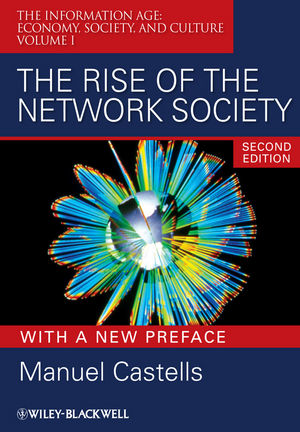A Framework for Web Science (2006)
Filed under paper | Tags: · internet, p2p, semantic web, technology, web, web science
This text sets out a series of approaches to the analysis and synthesis of the World Wide Web, and other web-like information structures. A comprehensive set of research questions is outlined, together with a sub-disciplinary breakdown, emphasising the multi-faceted nature of the Web, and the multi-disciplinary nature of its study and development. These questions and approaches together set out an agenda for Web Science, the science of decentralised information systems. Web Science is required both as a way to understand the Web, and as a way to focus its development on key communicational and representational requirements. The text surveys central engineering issues, such as the development of the Semantic Web, Web services and P2P. Analytic approaches to discover the Web’s topology, or its graph-like structures, are examined. Finally, the Web as a technology is essentially socially embedded; therefore various issues and requirements for Web use and governance are also reviewed.
Authors: Tim Berners-Lee, Wendy Hall, James A. Hendler, Kieron O’Hara, Nigel Shadbolt and Daniel J. Weitzner
Publisher Now Publishers Inc, 2006
Foundations and Trends in Web Science. Vol. 1, No 1 (2006) pp. 1–130
ISBN 1933019336, 9781933019338
Length 134 pages
Joseph Weizenbaum: Computer Power and Human Reason: From Judgment To Calculation (1976) [English, German]
Filed under book | Tags: · artificial intelligence, computation, critique, critique of technology, ethics, technology

“Joseph Weizenbaum’s influential book displays his ambivalence towards computer technology and lays out his case: while artificial intelligence may be possible, we should never allow computers to make important decisions because computers will always lack human qualities such as compassion and wisdom. Weizenbaum makes the crucial distinction between deciding and choosing. Deciding is a computational activity, something that can ultimately be programmed. It is the capacity to choose that ultimately makes us human. Choice, however, is the product of judgment, not calculation. Comprehensive human judgment is able to include non-mathematical factors such as emotions. Judgment can compare apples and oranges, and can do so without quantifying each fruit type and then reductively quantifying each to factors necessary for mathematical comparison.”
Publisher W. H. Freeman, 1976
ISBN 0716704633, 9780716704638
300 pages
Review: Amy Stout.
Computer Power and Human Reason (English, 1976, DJVU, updated on 2013-11-22)
Computermacht und Gesellschaft (German, trans. Gunna Wendt, 2001, unpaginated, added on 2013-11-22)
Manuel Castells: The Rise of the Network Society, 2nd ed. (2000/2009)
Filed under book | Tags: · city, economy, internet, network society, society, technology

This first book in Castells’ groundbreaking trilogy, with a substantial new preface, highlights the economic and social dynamics of the information age and shows how the network society has now fully risen on a global scale.
* Groundbreaking volume on the impact of the age of information on all aspects of society
* Includes coverage of the influence of the internet and the net-economy
* Describes the accelerating pace of innovation and social transformation
* Based on research in the USA, Asia, Latin America, and Europe
2nd Edition with a New Preface
Publisher John Wiley and Sons, 2009
Volume 1 of Information Age: Economy, Society, and Culture
ISBN 1405196866, 9781405196864
Length 656 pages

